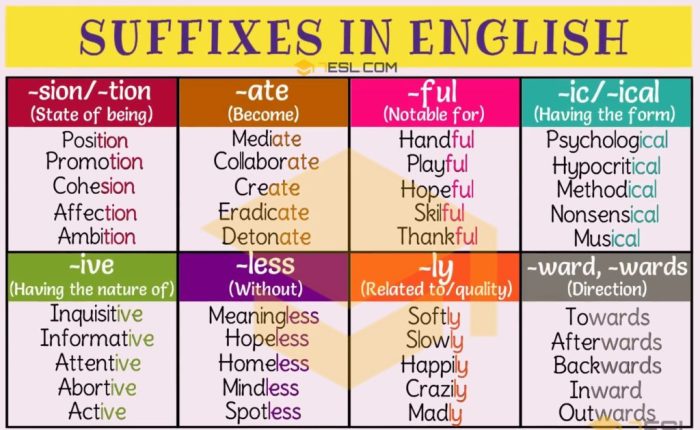Embarking on an exploration of less ile biten ingilizce kelimeler, this comprehensive guide delves into the intricate world of words that culminate in the suffix “less.” From adjectives that compare and contrast to adverbs that modify verbs, and nouns that capture concepts, this discourse unravels the grammatical functions, historical origins, and literary applications of these linguistic gems.
As we traverse this linguistic landscape, we will dissect the comparative and superlative forms of adjectives, uncover the formation and usage of adverbs, and identify the distinct types of nouns that don this suffix. Moreover, we will illuminate the etymological roots of these words, tracing their evolution through time.
Types of Words Ending in “less”: Less Ile Biten Ingilizce Kelimeler

Words ending in “less” can belong to various grammatical categories, including adjectives, adverbs, and nouns. Each type serves a specific grammatical function in a sentence.
Adjectives Ending in “less”, Less ile biten ingilizce kelimeler
- Adjectives ending in “less” express a quality or characteristic that is relatively lower or lesser in degree.
- They are used to compare two or more nouns or pronouns.
| Adjective | Comparative | Superlative |
|---|---|---|
| careless | more careless | most careless |
| hopeless | more hopeless | most hopeless |
| thoughtless | more thoughtless | most thoughtless |
Adverbs Ending in “less”
Adverbs ending in “less” describe the manner or extent of an action or verb. They are formed by adding “-ly” to the adjective form of the word.
- carefully (in a careful manner)
- hopelessly (in a hopeless manner)
- thoughtlessly (in a thoughtless manner)
Query Resolution
What are the different types of words that end in “less”?
Words ending in “less” can be adjectives (e.g., careless), adverbs (e.g., regardless), and nouns (e.g., restlessness).
How do you form the comparative and superlative forms of adjectives ending in “less”?
To form the comparative, add “-er” (e.g., careless -> caresser). To form the superlative, add “-est” (e.g., careless -> carest).
What is the etymology of the suffix “less”?
The suffix “less” originates from the Old English suffix “-leas,” which means “without” or “devoid of.”

